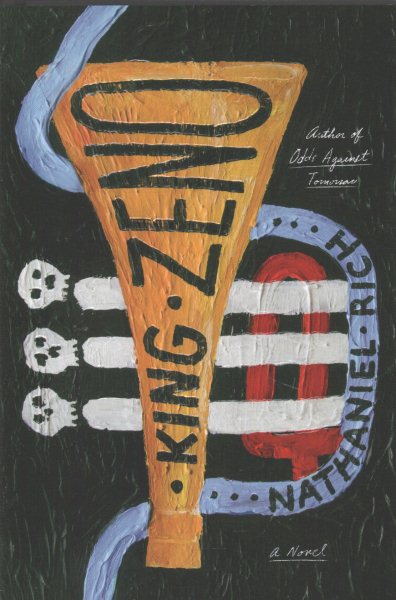By Jim Ewing. Special to the Clarion-Ledger Sunday print edition (January 28)
King Zeno by Nathaniel Rich is a crime novel that transcends the genre to suck the reader into a world long gone.
 It’s a “crime” novel because it swirls around the notorious, real life crimes of an ax murder spree and wave of street robberies that struck 1918 New Orleans.
It’s a “crime” novel because it swirls around the notorious, real life crimes of an ax murder spree and wave of street robberies that struck 1918 New Orleans.
But it rises above the set piece of police procedurals by enlivening the characters beyond a simple whodunit. Rather, it is an absorbing novel spiced with rich, deep characters in a sweeping foray where the crimes serve as a framework.
The main characters include:
- Beatrice Vizzini, the widow of a “Black Hand” (read: mafia) crime figure, who masterminds the “protection” racket of small Italian grocers, while trying to turn legitimate;
- Giorgio, her flawed son, a menacing figure she hopes will take over the family business;
- Isadore “King” Zero, a talented trumpeter, struggling to survive on the mean streets, including resorting to robbery, to provide for his pregnant wife and disapproving mother-in-law, while pioneering the then-new musical form of jazz;
- Police Det. Bill Bastrop, a World War I veteran, who suffers from what today would be called PTSD, tasked with solving a wave of street robberies and a string of ax murders terrorizing the city.
Rising above this miasma of passions, fears and chicanery, the deadly 1918 flu pandemic (that infected 500 million people worldwide, killing up to 40 million) stalks the Crescent City, stirring a rising tide of the sick and the dead.
An allure of Zeno is its ability to act as a time machine, carrying people who love the flavor and lore of NOLA to another time, fleshing out areas of the city such as Storyville, the Garden District, the Irish Channel.
Taking place as the Industrial Channel is being dug, linking Lake Pontchartrain to the Mississippi River, Zeno is filled with descriptions of a city that still lives under the surface of modernity. The characters are believable, well-crafted, and even with its heft of nearly 400 pages, the book carries the reader briskly forward.
Rich is masterful in mapping the characters’ motivations, often not fully understood by the characters themselves, deftly teasing out a believable plot through their interactions.
His language is, at times, made obscure by the vernacular of the period, but at times crystalline. For example, in explaining Isadore’s attraction to music, he writes that he “had always understood music as a conversation with the Dark Unknown—the dimension of the world that was hidden to the world …. When you played, the conversation went both ways.”
Zeno is a mesmerizing walk through time into a New Orleans that still subtly exists, with prostitution, gambling, street crime, wretched social inequality, and stark racism, overlaid by exquisite music, mindless excess, and licentious celebration. It all adds up to a tantalizing read with astute insights into the human condition.
Jim Ewing, a former writer and editor at The Clarion-Ledger, is the author of seven books including his latest, Redefining Manhood: A Guide for Men and Those Who Love Them.


Comments are closed.